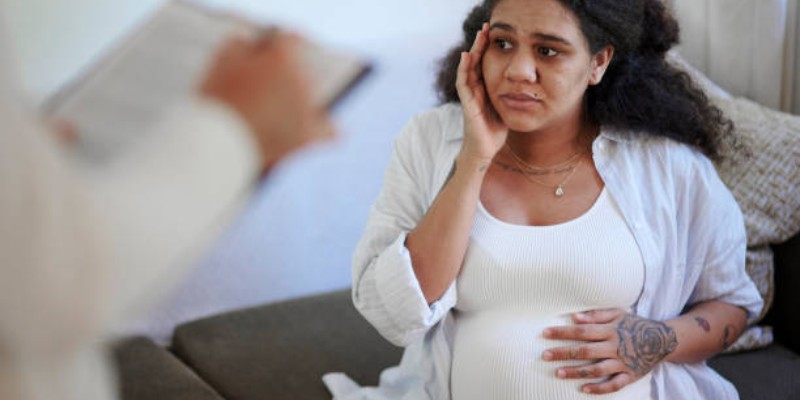Is It Safe? Answering 50 Common Pregnancy Questions
When I started thinking about pregnancy, my mind was full of questions. So many questions. Is it safe to eat sushi? Can I still go for a run? Will I know when I'm in labour? You're not alone if you're like me and have ever wondered about these things. Let's dive into some of the most common pregnancy questions and get answers that are easy to understand.
How Will I Feel When I'm Pregnant?
Pregnancy can feel different for everyone. Some women say they feel tired all the time, while others feel bloated or even nauseous. Morning sickness is a big one people talk about, but did you know it doesn't just happen in the morning? You might also notice your emotions going up and down like a roller coaster. The good news is, this is all normal. Your body works hard to grow a tiny human, so give yourself some grace.

Can I Exercise While I Am Pregnant?
Yes, you can exercise during pregnancy, and it's good for you. Walking, swimming, and prenatal Yoga are great options. But if you've never exercised before, don't jump into anything too intense. Start slow and listen to your body. If something feels uncomfortable or painful, stop. Always check with your doctor before starting any new workout routine, though.
How Much Weight Gain Is Acceptable?
Weight gain during pregnancy is normal, but how much is okay depends on your body. If you're at a healthy weight before getting pregnant, gaining between 25 to 35 pounds is usually recommended. If you're underweight, you should earn more. If you're overweight, you might need to gain less. The key is to focus on eating healthy foods and not worrying too much about the scale.
When Do Most Women Go Into Labor?
Most women go into labour around their due date, but it's important to remember that only about 5 per cent of babies are born on their exact due date. Labour can start between 37 and 42 weeks, and that's still considered normal. Every pregnancy is different, so try not to Stress too much about the timing.
What Are The Most Common Complications During Pregnancy?
Complications can happen, but they're not always something to worry about. Things like high blood pressure, gestational diabetes, and bleeding are some of the more common issues. If you have any concerns, talk to your doctor right away. They'll help you determine what's happening and ensure you and your baby stay healthy.
How Will I Know I Am In Labor?
You'll probably know you're in labour because you'll feel contractions that get stronger and closer together. Some women also notice their water breaking when the amniotic sac releases fluid. Other signs include back pain and feeling like you need to poop. If you're unsure, call your doctor or midwife. They'll guide you through what to do next.
What Pain Relief Options Are Available?
There are lots of ways to manage pain during labour. Some women choose an epidural, which is a medicine that numbs the lower part of your body. Others prefer natural methods like Breathing exercises, massages, or warm showers. Talk to your doctor about what's available and what might work best for you.
How Do I Know My Baby Is Getting Enough Milk?
If you’re breastfeeding, you might worry about whether your baby is getting enough milk. One way to tell is by counting wet diapers. Newborns should have at least six wet diapers a day. You can also watch your baby’s weight. If they’re gaining weight, they’re probably doing just fine. If you’re still worried, ask a lactation consultant for help.
Are There Any Foods I Should Avoid During Pregnancy?
Yes, there are some foods you should skip while you’re pregnant. Raw fish, like sushi, is one of them. Soft cheeses, raw eggs, and deli meats can also be risky because they might carry harmful bacteria. Stick to cooked foods and wash fruits and veggies well. And don’t forget to drink plenty of water.
Can I Keep Drinking Coffee?
The good news is that you can still have coffee, but you'll need to cut back. Too much Caffeine isn't good for your baby, so try to limit yourself to one small cup a day. If you're a tea or soda drinker, keep an eye on those, too, because they also often have Caffeine.
Can I Keep Exercising? Or Can I Start a New Exercise Routine?
Exercise is excellent during pregnancy, but you must be smart about it. If you were active before, you can keep doing what you were doing as long as your doctor says it's okay. If you want to start something new, do low-impact activities like walking or swimming. Just don't push yourself too hard.

What Are The Long-Term Risks Of Pregnancy?
Sometimes, pregnancy can affect your health later in life. For example, if you had high blood pressure during pregnancy, you might be more likely to develop it again in the future. Emotional health is essential, too. Some women feel sad or anxious after having a baby, and that's okay. Talk to someone if you're struggling.
How Much Weight Do You Lose After Giving Birth?
Right after giving birth, you'll lose some weight from the baby, placenta, and amniotic fluid. But don't expect to drop all the pregnancy weight right away. It takes time for your body to heal and adjust. Focus on eating healthy and staying active; the rest will come in time.
How Long Do You Bleed After Giving Birth?
Bleeding after giving birth is normal and can last for a few weeks. At first, it might be heavy and bright red, but it should get lighter over time. If the bleeding worsens or you see large clots, inform your doctor.
How Will I Cope With Breastfeeding?
Breastfeeding can be challenging at first, but it gets easier with practice. If you're struggling, reach out for help. A lactation consultant can show you different positions and techniques to make it more comfortable. Remember, it's okay if breastfeeding doesn't work out for you. Formula is a perfect option, too.
Can I Travel While Pregnant?
Travelling while pregnant is usually safe, especially in the second trimester when you're feeling your best. But always check with your doctor first, especially if you're planning a long trip. Flying is generally okay, but road trips might be more comfortable if you can take breaks to stretch your legs.
What Should I Do If I Think Something Is Wrong?
If you ever feel something isn't right, trust your instincts and call your doctor. They're there to help you and your baby stay healthy. Don't wait to see if the problem goes away on its own. It's always better to be safe than sorry.
What Are The Signs Of Miscarriage?
Miscarriage is when a pregnancy ends on its own, usually in the first trimester. Signs might include cramping, bleeding, or losing pregnancy symptoms like nausea. If you think you might be having a miscarriage, contact your doctor right away.
What Is Gestational Diabetes?
Gestational diabetes is a type of diabetes that happens during pregnancy. It means your body has trouble controlling your blood sugar levels. Most women with gestational diabetes have healthy babies, but you’ll need to monitor your diet and possibly take medication.
What Is Preeclampsia?
Preeclampsia is a serious condition that can happen after 20 weeks of pregnancy. It causes high blood pressure and can affect your liver and kidneys. Tell your doctor immediately if you have symptoms like swelling, headaches, or vision changes.
What Should I Pack For The Hospital?
Packing for the hospital can feel overwhelming, but it doesn't have to be. Bring comfy clothes to wear home, toiletries, snacks, and something to entertain yourself during labour. Don't forget the car seat for when it's time to bring your baby home.
How Do I Prepare For Life With a Newborn?
Life with a newborn is a significant change, but preparation can help. Stock up on diapers, wipes, and onesies. Set up a cosy space for feeding and changing. And don't forget to ask for help when you need it. Having a support system makes a huge difference.
What Are The Best Ways To Bond With My Baby?
Bonding with your baby starts the moment they're born. Hold them close, talk to them, and sing songs. Skin-to-skin contact is compelling because it helps your baby feel safe and loved. Every little moment counts.
What Should I Expect At My First Prenatal Appointment?
Your first prenatal appointment is exciting but can also feel overwhelming. Your doctor will ask lots of questions about your health and family history. They’ll also do a physical exam and maybe an ultrasound. This is your chance to ask all the questions you’ve been wondering about.
What Happens During Each Trimester?
Each trimester of pregnancy brings new changes. In the first trimester, you might feel tired and nauseous. The second trimester is often called the "honeymoon phase" because many women feel their best. You'll feel big and ready to meet your baby by the third trimester.
How Do I Choose a Pediatrician?
Choosing a paediatrician is an important decision. Ask friends and family for recommendations, and schedule interviews with a few doctors. Make sure you feel comfortable asking them questions and that they listen to your concerns.
What Vaccines Do I Need During Pregnancy?
Getting vaccinated during pregnancy protects both you and your baby. The flu shot and Tdap vaccine are two recommended vaccines. Talk to your doctor about which vaccines are right for you.

How Do I Handle Heartburn?
Heartburn is common during pregnancy, but there are ways to ease the discomfort. Eat smaller meals, avoid spicy foods, and don't lie down after eating. If it's awful, your doctor might recommend a safe medication.
What Are The Benefits Of a Doula?
A doula is someone who supports you during labour and delivery. They can help you stay calm, suggest pain relief techniques, and advocate for your wishes. Many women find having a doula makes the birthing process smoother.
How Do I Know If My Pregnancy Is High-Risk?
A high-risk pregnancy means you or your baby might need extra care. Factors like age, medical conditions, and multiples (like twins) can make a pregnancy high-risk. If you’re unsure, ask your doctor to explain your specific situation.
What Are The Different Types Of Delivery?
There are a few ways babies are born. Vaginal delivery is the most common, but some women need a C-section. There’s also the option of a VBAC, which stands for vaginal birth after cesarean. Your doctor will help you decide what’s best for you.
What Happens After Birth?
After birth, your body needs time to heal. You might feel sore and tired, and that’s okay. Rest as much as you can and accept help when it’s offered. Don’t forget to take care of your emotional health too.
Staying Healthy And Happy During Pregnancy
Pregnancy is a journey, and every journey has its ups and downs. The most important thing is to take care of yourself and your baby. Ask questions, seek support, and trust that you do your best. You've got this.




